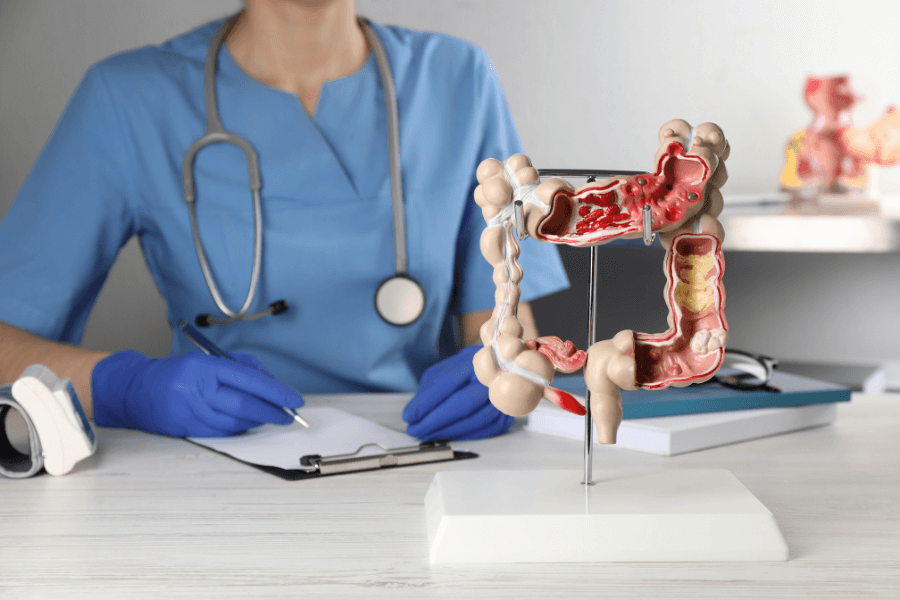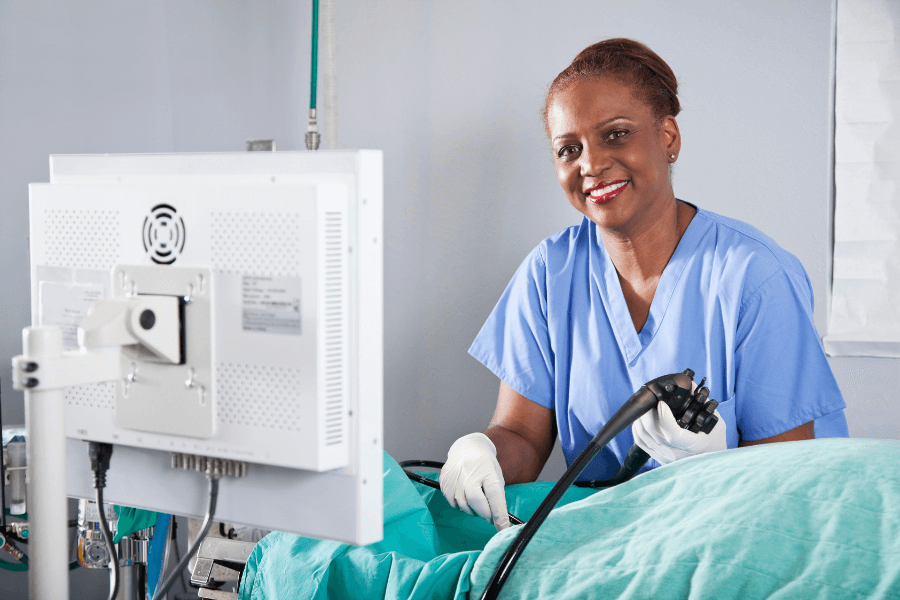Overview
Gastrointestinal (GI) health refers to the well-being of your digestive system, which includes your mouth, esophagus, stomach, small and large intestines, liver, pancreas, and gallbladder.
The digestive system plays a critical role in your overall health and well-being, as it is responsible for breaking down the food you eat into essential nutrients that your body needs to function properly.
Poor GI health can lead to a variety of issues, including indigestion, constipation, diarrhea, bloating, abdominal pain, and more serious conditions such as inflammatory bowel disease and colon cancer.
In this blog article, we will explore ways to improve your gastrointestinal health and reduce the risk of these conditions. We will also discuss Inflammatory bowel disease and the signs and symptoms thereof.
Inflammatory Bowel Disease Explained
Inflammatory bowel disease (IBD) is a chronic inflammatory condition that affects the digestive tract.
It is a term used to describe two conditions, Crohn’s disease and ulcerative colitis, which can cause inflammation and damage to different parts of the digestive system.
Crohn’s disease can affect any part of the digestive tract, from the mouth to the anus, and can cause symptoms such as abdominal pain, diarrhea, weight loss, and fatigue.
Ulcerative colitis, on the other hand, only affects the colon and rectum, and can cause symptoms such as abdominal pain, bloody diarrhea, and urgent bowel movements.
The exact cause of IBD is not known, but it is thought to be the result of an abnormal immune response to the bacteria in the gut.
IBD is a chronic condition that requires ongoing management and treatment to control symptoms and prevent complications.
The diagnosis of inflammatory bowel disease (IBD) typically involves a combination of medical history, physical examination, and diagnostic tests.

Diagnosis
The following are some of the common tests and procedures used to diagnose IBD:
Blood tests:
Blood tests can help to identify signs of inflammation, anemia, and other conditions that can cause similar symptoms to IBD.
Stool tests:
Stool tests can help to rule out other causes of gastrointestinal symptoms, such as infections, and can also provide information about inflammation in the digestive system.
Endoscopy:
Endoscopy involves the use of a flexible tube with a camera on the end to examine the inside of the digestive system. This can include a colonoscopy to examine the colon and rectum or an upper endoscopy to examine the esophagus, stomach, and small intestine.
Imaging tests:
Imaging tests, such as CT scans or MRI scans, can provide detailed images of the digestive system and can help to identify areas of inflammation or other abnormalities.
Biopsy:
A biopsy involves taking a small sample of tissue from the digestive system and examining it under a microscope. This can help to confirm a diagnosis of IBD and determine the type and severity of the disease.
It’s important to note that IBD can be a complex condition to diagnose, and it may take several tests and procedures to confirm a diagnosis.
It’s also important to work closely with a gastroenterologist or other healthcare professional to develop an appropriate treatment plan.

Ways to Prevent Colon Cancer
Colon cancer is a common and potentially deadly form of cancer. While there is no guaranteed way to prevent colon cancer, there are several steps you can take to reduce your risk:
Follow These Suggestions to Improve Gastrointestinal Health:
Eat A Balanced Diet:
Consuming a balanced diet that is high in fiber, fruits, and vegetables can help promote gut health and prevent digestive issues. Fiber, in particular, helps keep the digestive system running smoothly.
Stay Hydrated:
Drinking enough water can help prevent constipation and promote regular bowel movements.
Limit Processed Foods and Sugar:
Processed foods and sugar can disrupt the balance of good bacteria in the gut and contribute to digestive issues.
It’s important to limit the consumption of these foods.
Exercise Regularly:
Physical activity can help stimulate the digestive system and improve gut motility.
Yoga, meditation, and deep breathing exercises are some effective exercises.
Manage Stress:
Chronic stress can have negative effects on gut health, so it’s important to find ways to manage stress levels.
Yoga, meditation, and deep breathing exercises are some effective stress-management techniques.
Avoid Trigger Foods:
Certain foods can trigger symptoms in people with digestive issues, so it’s important to identify and avoid these trigger foods to prevent symptoms.
Consider Probiotics:
Probiotics are beneficial bacteria that can help restore the balance of good bacteria in the gut and improve gut health. Consider taking a probiotic supplement or consuming probiotic-rich foods like yogurt, kefir, and kimchi.
Get Enough Sleep:
Adequate sleep is essential for overall health and can also improve gut health. Aim for 7-8 hours of sleep per night.
Quit Smoking:
Smoking can have negative effects on gut health and increase the risk of digestive issues.
If you’re a smoker, consider quitting to improve your digestive health.
Talk To Your Doctor:
If you have persistent digestive issues, it’s important to talk to your doctor and get a proper diagnosis.
Your doctor can recommend treatments and lifestyle changes to improve your gastrointestinal health.

Conclusion
Gastrointestinal health is critical for overall health and well-being.
By following the ways discussed in this blog post, you can improve your gut health and prevent digestive issues.
Remember to eat a balanced diet, stay hydrated, limit processed foods and sugar, exercise regularly, manage stress, avoid trigger foods, consider probiotics, get enough sleep, quit smoking, and talk to your doctor if you have persistent digestive issues.
Although these remedies and guidelines might alleviate the pain, it is recommended to get a professional diagnosis from your doctor or gastroenterologist in order to discuss the way forward.
Dr Eduan prides himself on his ability to help his patients to the best of his ability by embracing good listening skills, effective communication, compassion and knowledge and skill honed during years of private gastroenterology practice.
If you would like to book an appointment with a gastrointestinal (GI) specialist or would simply like more information on a particular GI topic, don’t hesitate to use our online booking form or call Dr. Deetlefs at 021 551 867.
DISCLAIMER: PLEASE READ CAREFULLY
The information on this website is to provide general guidance. In no way does any of the information provided reflect definitive medical advice and self-diagnoses should not be made based on information obtained online. It is important to consult a Gastroenterologist or medical doctor regarding ANY and ALL symptoms or signs including, but not limited to: abdominal pain, haemorrhoids or anal / rectal bleeding as it may a sign of a serious illness or condition. A thorough consultation and examination should ALWAYS be performed for an accurate diagnosis and treatment plan. Be sure to call a physician or call our office today and schedule a consultation.
© Dr. Eduan Deetlefs, Registered Gastroenterologist, GI Doc Cape Town
Our website information is not intended or implied to be a substitute for professional medical advice, diagnosis or treatment. Please consult a doctor about your specific condition. Only a trained physician can determine an accurate diagnosis and proper treatment.


